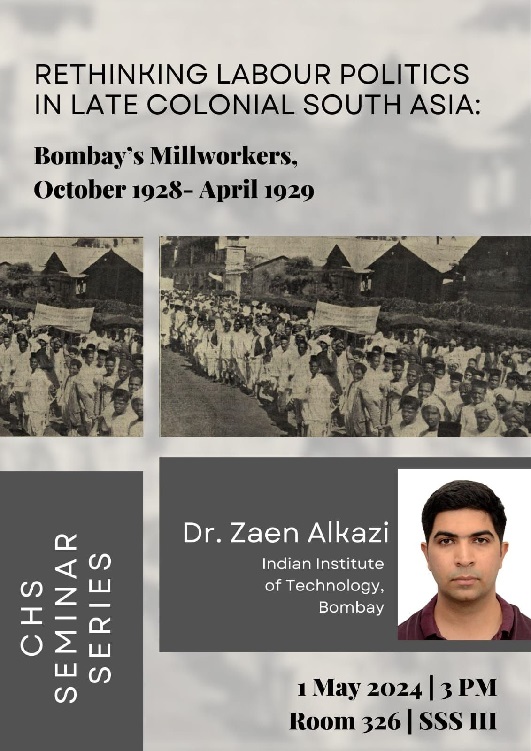
Abstract: Between October 1928 and April 1929, workers took over the shop floors of Bombay’s cotton mills to resist the Bombay Mill Owners’ Association’s plans to rationalize the work process. Organized in the mill committees of the Girni Kamgar Union (Textile Workers’ Union), workers defied work discipline *en masse* by refusing to comply with orders, work speed-ups, and shift timings. Moreover, mill committee activists claimed that the only legitimate authority in the mill was that of the union and issued orders that conflicted with those of mill management, producing a crisis of managerial authority. Workers claimed *labour raj was* imminent, while mill officials armed themselves with revolvers in an attempt to re-establish their authority, bringing working-class Bombay to the brink of violent class conflict.
Such moments of labour mobilization provoke us to rethink the nationalist historiography of late colonial South Asia, which paints the end of the empire as a period dominated by Gandhian non-violent anti-colonial mass mobilization. In this paper, I will argue that late colonialism was suspended between the present of mass movements and the imminence of a
decolonized future, between the ‘no longer’ of the permanence of colonial rule and the ‘not yet’ of an undefined ‘freedom’. This historical tension allowed for diverse political imaginations of emancipation to develop, which challenged the emancipatory limits of Gandhian anti-colonial mobilization and gave politics a utopian edge.
Dr Zaen Alkazi is a Postdoctoral Researcher at the New Political Economy Initiative, IIT Bombay. His work explores the urban and labour politics of late colonial South Asia through studies of Bombay’s textile and railway workers. Zaen holds a PhD in History from the School of Oriental and African Studies for his thesis, ‘The Political Imaginations of Bombay’s
Textile Workers, c. 1928-1946’. Apart from his academic work, Zaen also reports on the working conditions of Indian railway workers today.